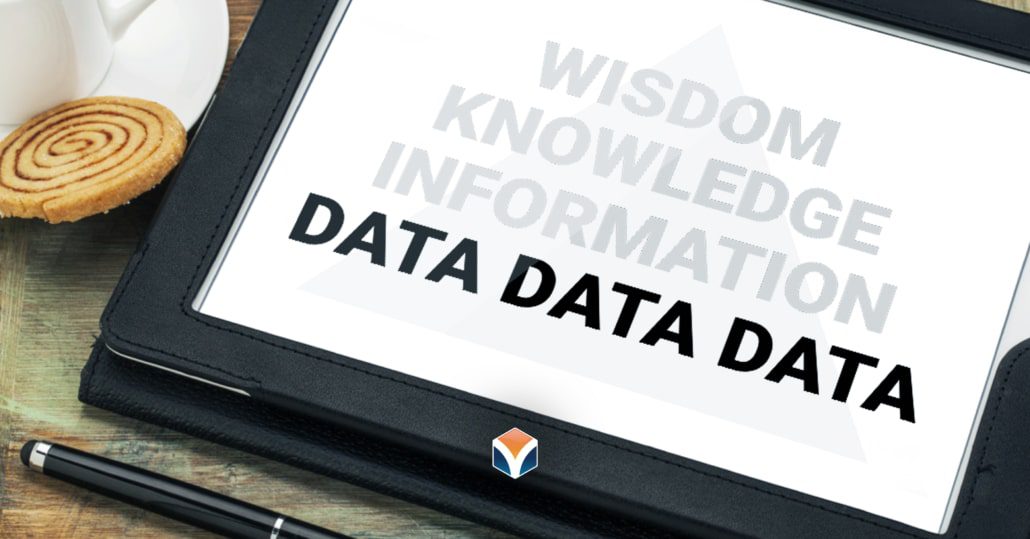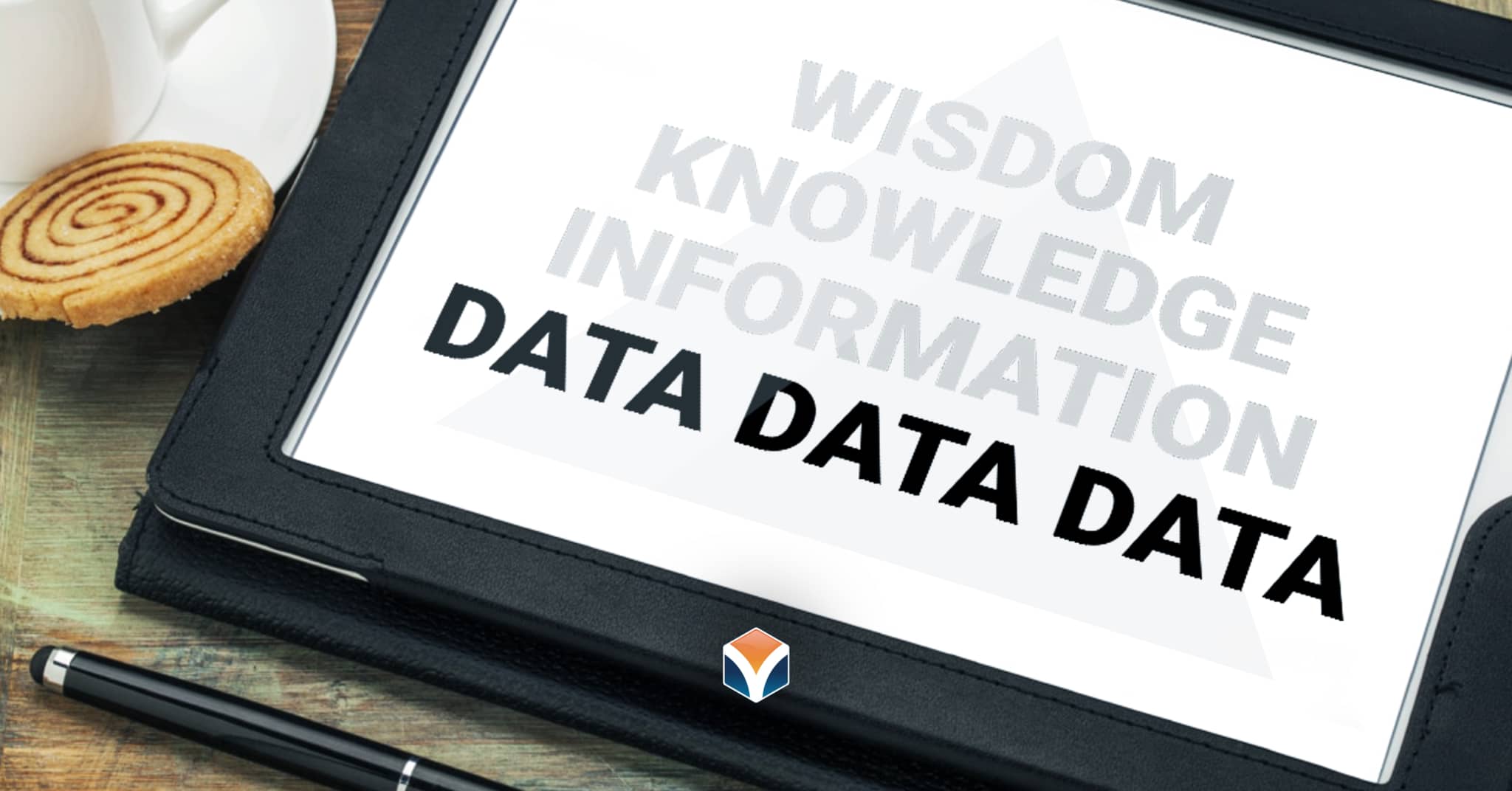
IT cannot exist without information, and information cannot exist without data. Technology is what creates data, and allows you to turn that data into information for your company to better increase sales.
Understanding the data process can be a bit perplexing. However, it’s important to have a handle on how it all works so you can leverage your data for the success of your business.
More often than not, businesses use the terms “data” and “information” interchangeably. This is true even at Vision as it’s an acceptable practice within the industry, especially in marketing. However, they are not the same thing.
Data and Information… What’s the Difference?
Essentially, data is raw numbers collected by technology. Data looks like a bunch of ones and zeros, and if one were to read data, it would make zero sense.
Subsequently, information is data that’s been processed and interpreted so that meaning can be attributed to it. Once you understand the meaning of the provided information, you can use it to make informed decisions for your business.
To put it simply, data is needed by computers, and information is needed by humans.
This is precisely why it’s so important that your company’s data-collection process is sound. Otherwise, your information may not be accurate – leading to poor decision making. As you can imagine, the process in which data goes from random numbers to become information helpful to us is a bit of a process. If even just one step of the process is weak, the end results will be too.
The DIKW Pyramid
One way to view this data-transformation process is with a four-tier pyramid – with wisdom on the top and data on the bottom. This pyramid represents raw data evolving into information.
Business 2 Community provides us with a salad metaphor to describe the DIKW pyramid levels:
- Data: I have one item. The data displays a 1, not a zero.
- Information: It’s a tomato. Now, we understand the item and its characteristics.
- Knowledge: A tomato is a fruit. We can identify patterns in the information and apply them to the item.
- Wisdom: Tomato is never added to a fruit salad. There is an underlying, commonly understood principle that governs the item’s purpose.
B2C states that “bad data costs time and effort, gives false impressions, results in poor forecasts, and devalues everything else in the continuum.” Needless to say, it’s in your company’s best interest to place high priority on having quality software to ensure your data is as reliable and accurate as it can be.
Need Expert Assistant with Backup and Disaster Recovery Solutions?
If your company’s computers and servers are both functioning properly and your communications are well-organized, you’ll be less vulnerable to leaking or losing your data. As you’ve seen in the DIKW pyramid, if something were to happen to your data, your company loses its foundation.
Vision can help meet both of your concerns with our managed or co-managed IT services, and our data backup and disaster recovery solution.
READ MORE
TechTalk Detroit Podcast: Data Backup & Disaster Recovery 101
Data Backup & Disaster Recovery for Title Companies
Are You Prepared? Your 9 Step Local Business Disaster Recovery Plan
Disaster Recovery and Why It Matters for Small Businesses

Charles Lobert, has been in the Detroit Metro Area’s IT industry for over two decades & with VCS since ’04. Throughout the years, Lobert has held nearly every position at VCS & is responsible for several major organizational shifts within VCS.

